4 Unusual Signs of Depression and Anxiety Disorder

Depression and anxiety are becoming more and more prevalent in the US. In fact, according to the newest data, now a third of Americans are showing signs of clinical anxiety or depression.
Those signs can range from lack of energy and feeling of emptiness to xerostomia (dry mouth resulting from reduced flow of saliva).
Here we will take a look at four unusual symptoms associated with anxiety and depression.
#1 Dry Mouth
Anxiety and stress are normal parts of life. They are reactions almost every single person encounters in their life. However, if your anxiety and stress are chronic, you might start experiencing something like dry mouth.
Xerostomia, or a reduced salivary flow, can occur for a couple of reasons, including breathing through the mouth, gastroesophageal reflux disease, which is more common in people with anxiety, or anti-anxiety medications.
This reaction to depression and anxiety is quite common. Not all people are able to notice it, but it can happen to about half of the people with these conditions.
In a 2016 study, it was found that 31.7% of people with severe depression experienced xerostomia (dry mouth), and 11.7% of them exhibited a diminished salivary flow without xerostomia.
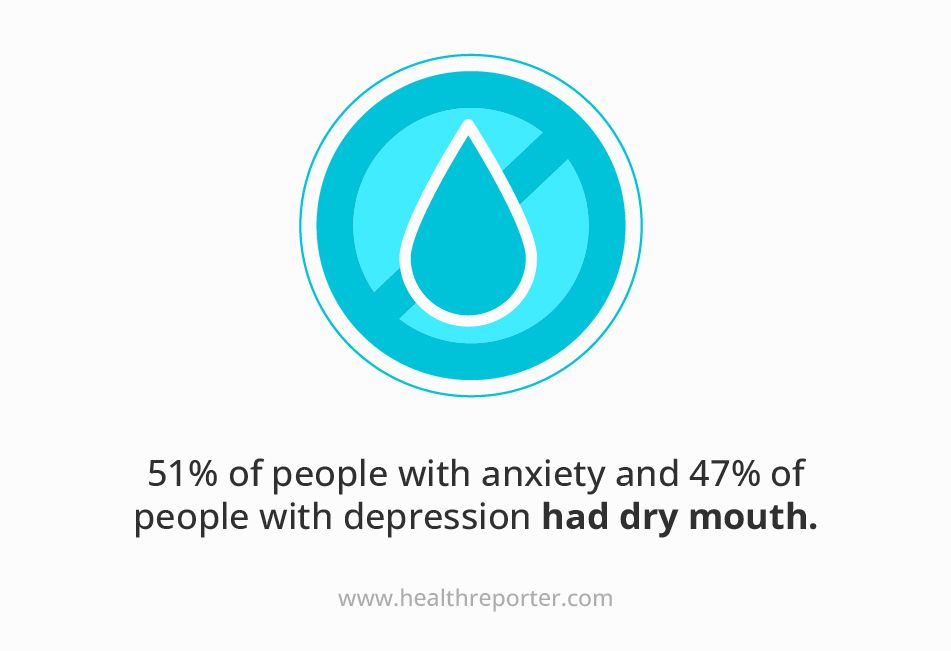
This is pretty significant because a diminished salivary flow and xerostomia can lead to multiple oral diseases, like parotitis, cheilitis (inflammation and fissuring of the lips), candidiasis, periodontitis, etc.
#2 Increased Touchiness
When we encounter such tough mental conditions as depression and anxiety, our physiological need to be supported can manifest in increased touchiness.
According to research, in some patients with depression and anxiety, irritability and impatience when feeling down lead to a bigger need for physical touch.
Out of 4,711 people who took part in the quiz, 47.34% (2,230) answered that they felt touchy “pretty often,” and another 11.91% (561) said they are touchy “almost always.”
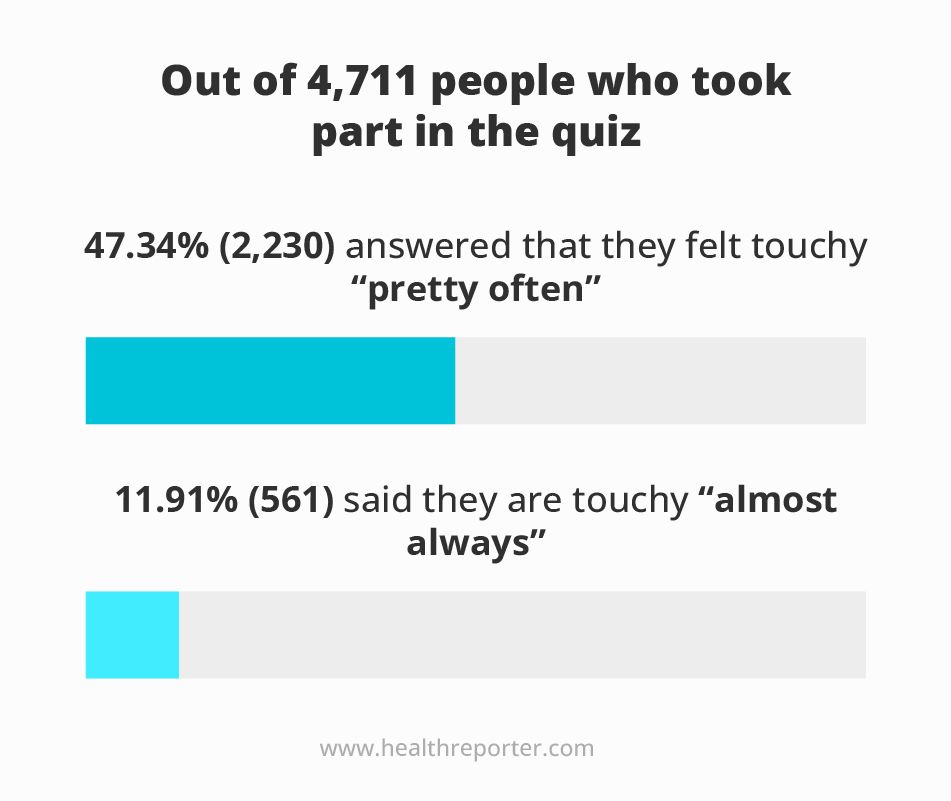
Increased touchiness can come from all kinds of emotions that, for people with depression, are constantly changing. A person with depression can go from feeling irritated and annoyed to being touchy within the same hour.
#3 Physical Pain
Even though depression and anxiety are mostly associated with emotional pain, research shows that these conditions can manifest as physical pain as well.
People with depression most frequently complain about chronic joint pain, limb pain, back pain, gastrointestinal problems, tiredness, trouble sleeping, etc.
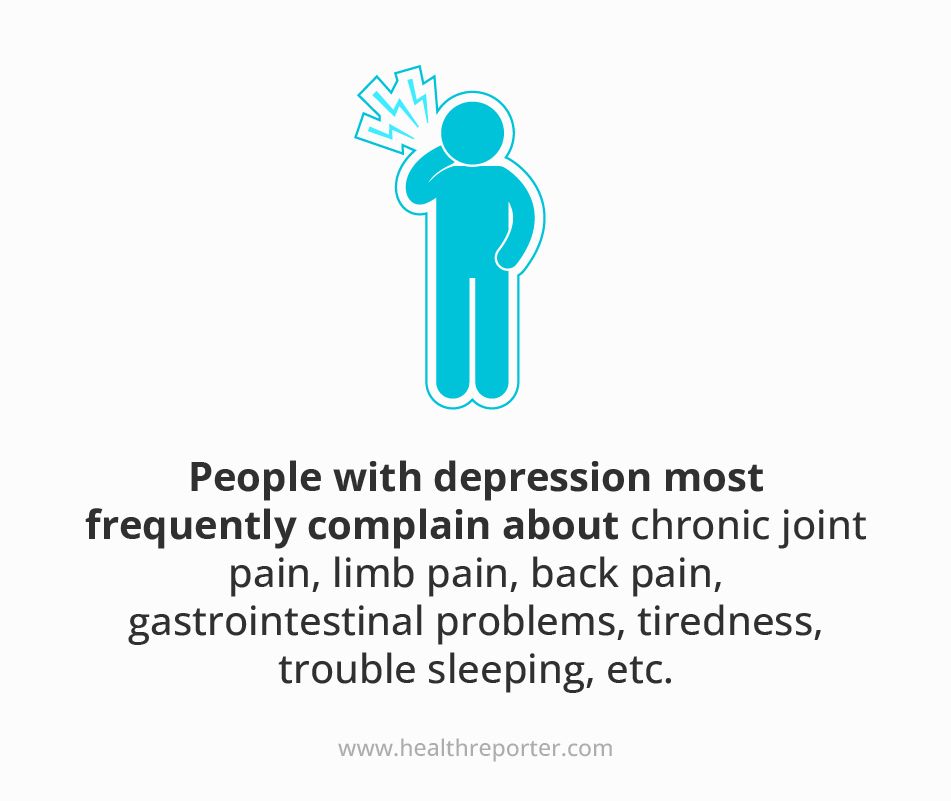
Mental conditions and physical pain have a deep biological connection. Both pain and mood are controlled through neurotransmitters by serotonin and norepinephrine.
The dysregulation of these transmitters is linked to both depression and pain.
According to the newest research, the correlation between physical pain and mental conditions is quite strong. This study showed that among people who reported 9 or more physical symptoms, 60% had some kind of mental disorder.
#4 Negative Body Image
According to healthcare organizations, psychological disorders are present in almost 20% of Americans. Most of the people who fall under this category experience dissatisfaction with their body image.
According to various research, distorted body image is considered a risk factor for developing depressive symptoms. Other studies say that this problem occurs in people who already have depression.
Either way, increased awareness of how we look and dissatisfaction with our reflection are strongly associated with anxiety disorder and depression.
Although almost all studies are done with adolescents, they prove that there might be a strong correlation between depression and dissatisfaction with body image.
According to 2019 research, almost one-third of people who suffer from depression are unhappy with their reflections.
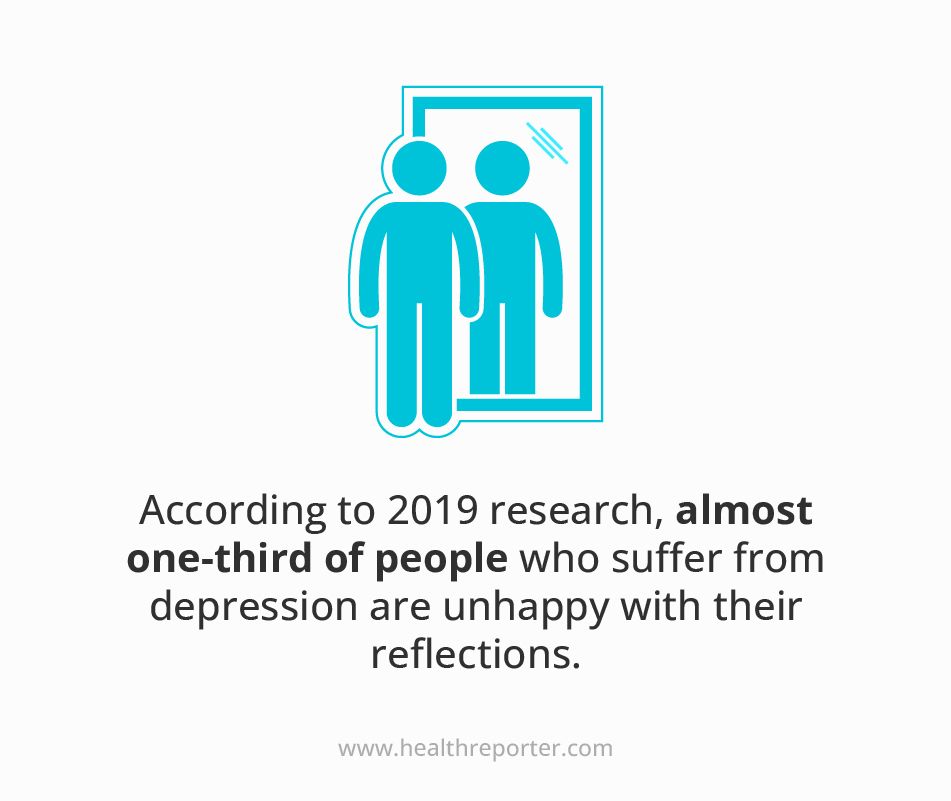
Evidence shows that there is a bidirectional link between depression and body image. Either depression worsens our body image perception, or a distorted reflection favors depression.
Conclusion
Although most of us associate depression and anxiety with mental challenges and pain, the truth is that this condition has physiological consequences, too.
Although these disorders are diagnosed by psychiatrists after completing various tests, there are many physical symptoms that can warn you about your mental state.
Most unusual warning signs consist of increased touchiness, negative body image, dry mouth, and even physical pain. If you experience these symptoms, we would urge you to track your mental state with more attention or even to consider visiting a specialist.
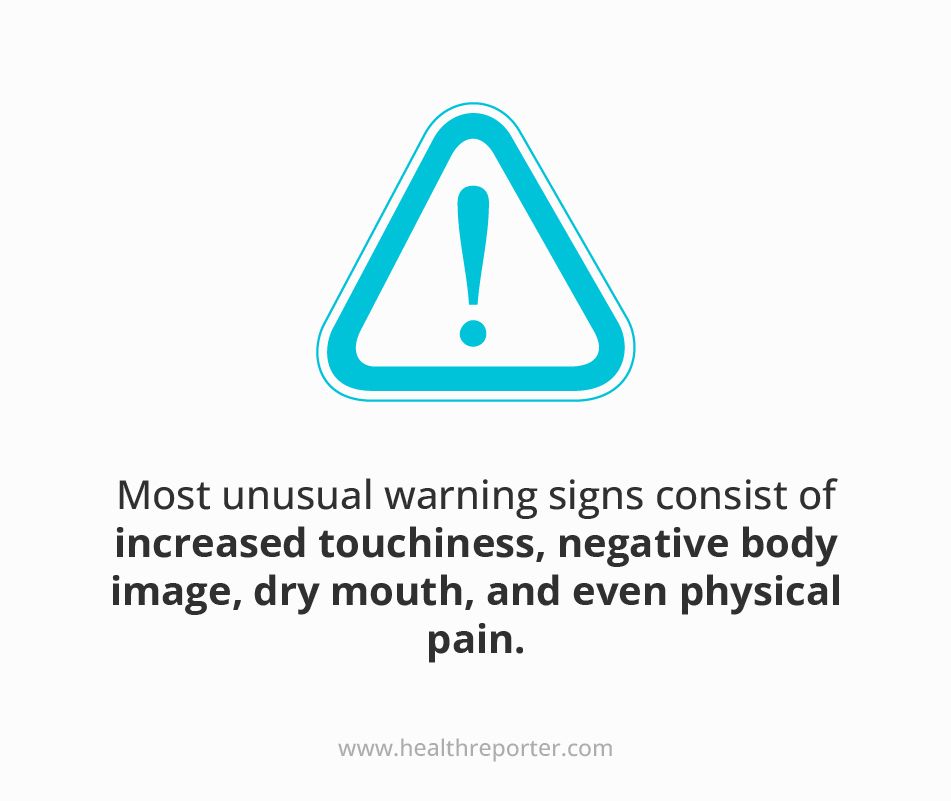

















































 Select your language:
Select your language: 







